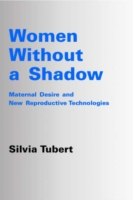The rapid development of reproductive technologies has questioned many essential concepts belonging to our symbolic universe, such as human reproduction, motherhood and fatherhood; the transmission of the biological and cultural inheritance of mankind and the constitution of the psychic subject. These concepts, however, are supported by ideologies and value systems which hide that they are but theoretical constructions; consequently, they are taken as describing the "natural" function of reproduction. In this sense, the technological development takes the form of an increasing medicalization of the human body, of the life, sexuality and desire of people, especially of women. All this requires that we think critically about the conditions of possibility of these technologies and their psychological and ethical implications. In this book the author provides a detailed and rigorous analysis which locates the reproductive technologies in the historical context of the progressive technification of the management of human life, and their relation to the social and medical discourses on femininity, maternity and infertility.
From a psychoanalytic point of view, culture and its discontents, violence, domination, are related intimately to the problematic character of sexuality, which includes the uncertainties of our desires. Social, medical, anthropological and literary discourses try to define "maternal desire" in order to control it: the definitions which capture it in their nets are means to dominate desire as an object and to "construct" the desiring subject. But psychoanalysis (through the associations of the subjects in question) shows that we face here an impossible question: one thing is the enunciated "demand", what is said about one's own desire ("I want a child"), and a very different one is the unconscious desire which disturbs the conscious discourse and shows that there can be psychological obstacles that interfere with the accomplishment of conscious wishes, conflicts and contradictions emerging through the women's words.
In this book, the circulation of representations between the individual imaginary and collective myths is the basis of a multidisciplinary complex and original point of view, which confronts a variety of discourses arising from psychoanalysis, medicine, journalism, ethnology, mythology and literature.
EAN 9781853437083
ISBN 1853437085
Binding Paperback / softback
Publisher Free Association Books
Publication date June 1, 2004
Pages 247
Language English
Dimensions 229 x 152 x 19
Country United Kingdom
Readership Professional & Scholarly
Authors Tubert Silvia

















